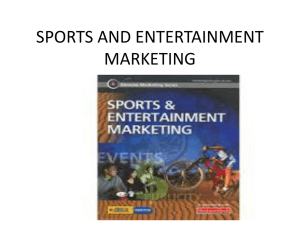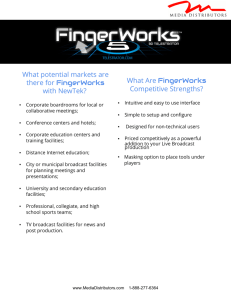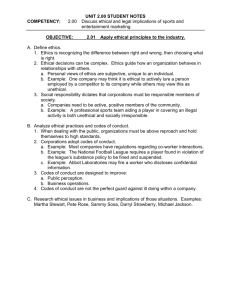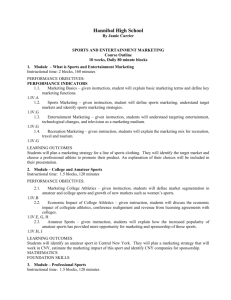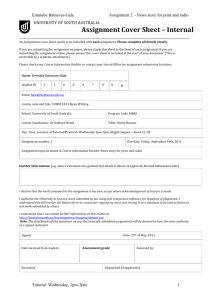1305379362-EnglishLanguageWebquest
advertisement
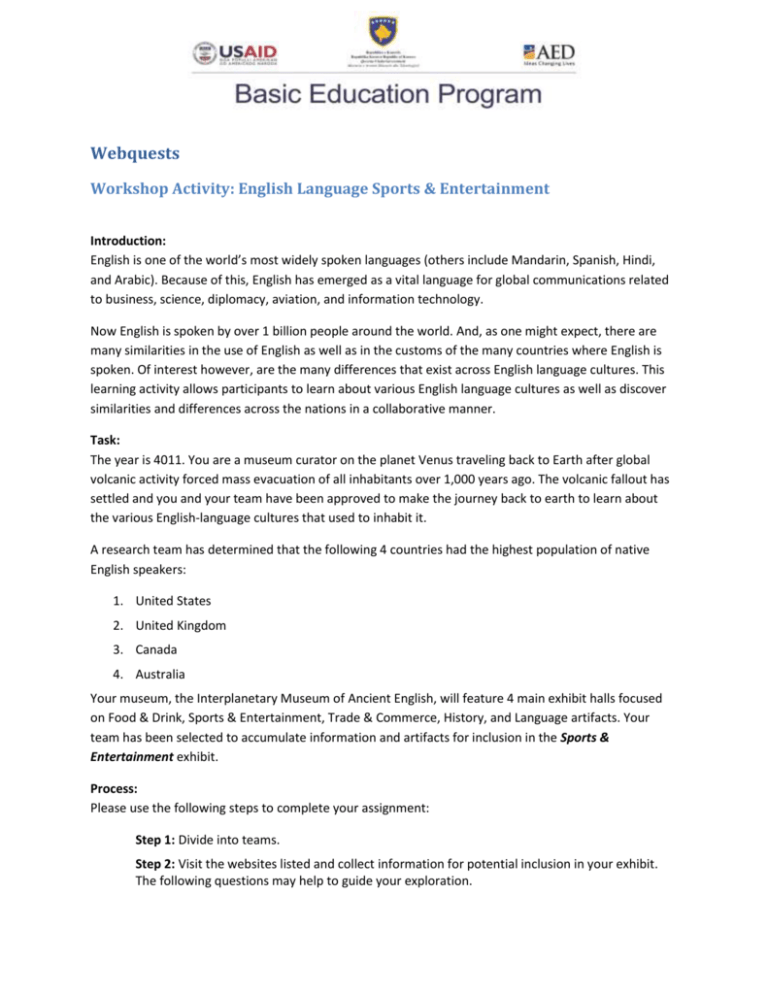
Webquests Workshop Activity: English Language Sports & Entertainment Introduction: English is one of the world’s most widely spoken languages (others include Mandarin, Spanish, Hindi, and Arabic). Because of this, English has emerged as a vital language for global communications related to business, science, diplomacy, aviation, and information technology. Now English is spoken by over 1 billion people around the world. And, as one might expect, there are many similarities in the use of English as well as in the customs of the many countries where English is spoken. Of interest however, are the many differences that exist across English language cultures. This learning activity allows participants to learn about various English language cultures as well as discover similarities and differences across the nations in a collaborative manner. Task: The year is 4011. You are a museum curator on the planet Venus traveling back to Earth after global volcanic activity forced mass evacuation of all inhabitants over 1,000 years ago. The volcanic fallout has settled and you and your team have been approved to make the journey back to earth to learn about the various English-language cultures that used to inhabit it. A research team has determined that the following 4 countries had the highest population of native English speakers: 1. United States 2. United Kingdom 3. Canada 4. Australia Your museum, the Interplanetary Museum of Ancient English, will feature 4 main exhibit halls focused on Food & Drink, Sports & Entertainment, Trade & Commerce, History, and Language artifacts. Your team has been selected to accumulate information and artifacts for inclusion in the Sports & Entertainment exhibit. Process: Please use the following steps to complete your assignment: Step 1: Divide into teams. Step 2: Visit the websites listed and collect information for potential inclusion in your exhibit. The following questions may help to guide your exploration. For the countries listed above: o What are the most popular sports for the countries listed above? o Are “official” sports mentioned for each country? o Who are the most popular actors? What are some popular movies? o Who are the most popular musicians and singers? What are some popular songs? o Are there famous athletes, actors, and singers you would like to profile in your exhibit? What information would you include about them? o What are the similarities and differences among English speaking countries as they relate to Sports & Entertainment? General: Top 100 Actors http://www.yourbest100.com/2011/03/top-100-actors/ United States: The 50 highest-earning American athletes http://sportsillustrated.cnn.com/specials/fortunate50-2010/index.html Greatest U.S. women's sport moments http://espn.go.com/page2/s/list/readers/uswomen/moments.html Top 10 Thursday: The Real Top 10 American Entertainers http://blogs.browardpalmbeach.com/countygrind/2009/07/top_american_entertai ners_michael_jackson_elvis_presley_frank_sinatra.php United Kingdom: British sports http://www.slideshare.net/ateixidoca1/british-sports-cm Ten great sporting moments http://www.dailymail.co.uk/sport/article-117077/Ten-great-sporting-moments.html David Beckham, Peter Kay, Winston Churchill and the Best of Brits lists http://www.mirror.co.uk/celebs/news/2011/04/08/david-beckham-peter-kaywinston-churchill-and-the-best-of-brits-lists-115875-23045567/ Canada: Canadian sports http://www.filibustercartoons.com/canguide_2_symbols_sports.php Famous Canadian Entertainers http://www.haltonlinks.com/cdn_entertainers.html Australia: Culture of Australia http://en.wikipedia.org/wiki/Culture_of_Australia#Sport Sporting Greats http://australia.gov.au/about-australia/australian-story/sporting-greats Famous Australians http://australian.lifetips.com/cat/12035/famous-australians/index.html Step 3: Examine the information provided on the websites and work with your team to determine which representational information to include in your exhibit (you can’t include everything!). Step 4: Convene with other groups to present your exhibits.

